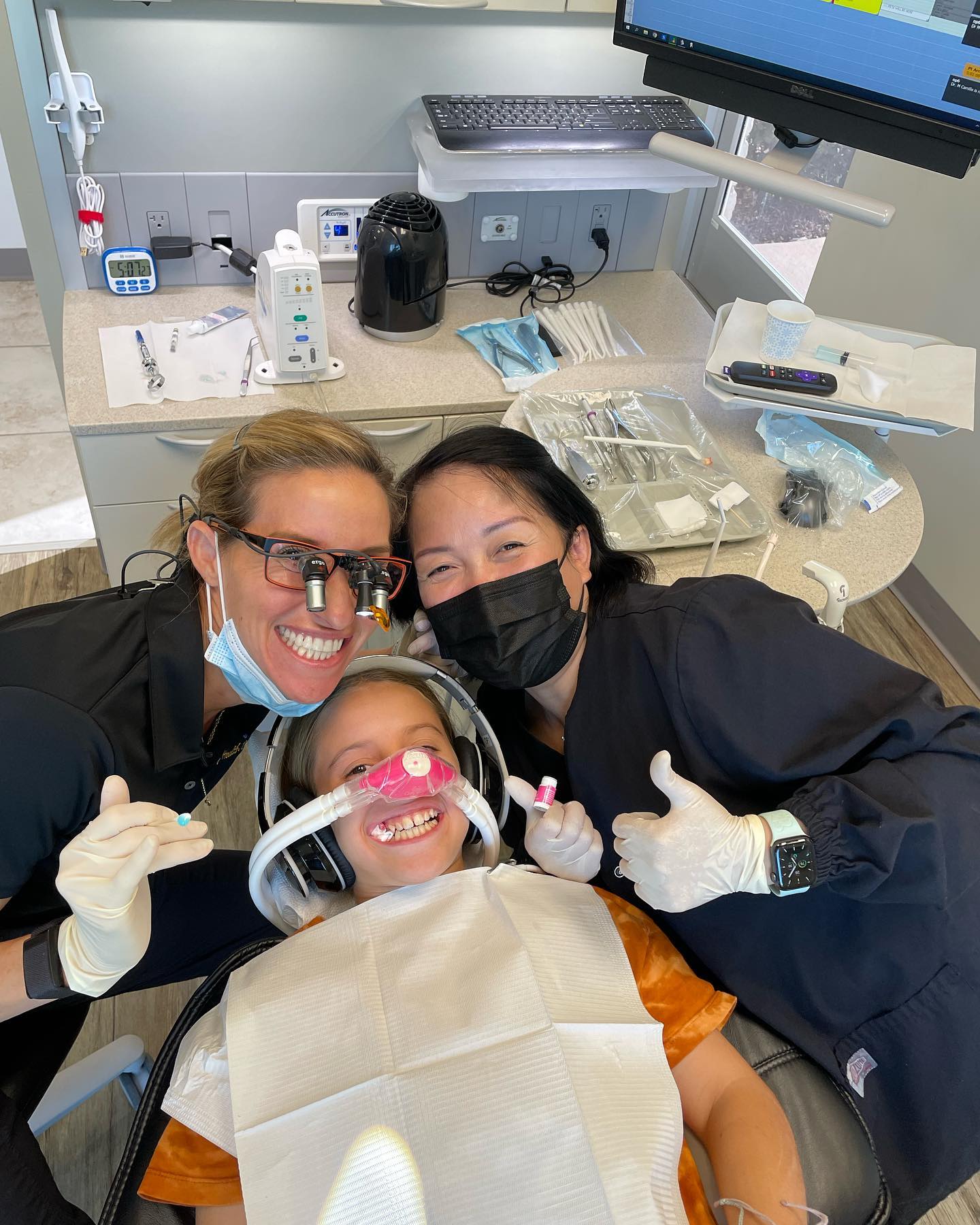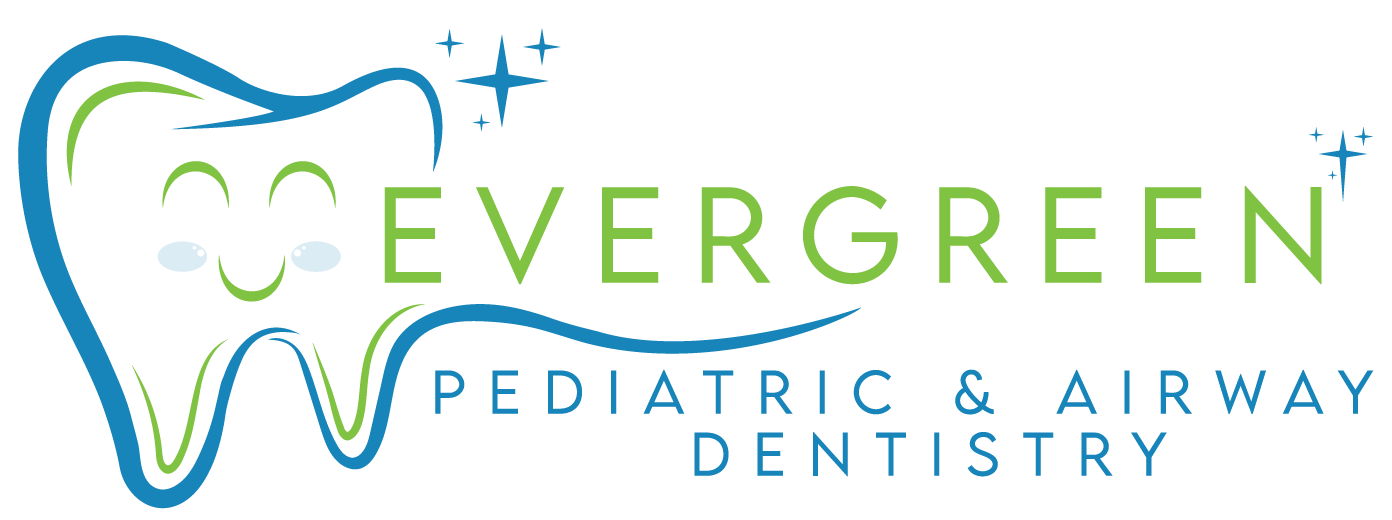Sleep Dentistry for Kids: Your Secret Weapon to a Happier Child and Parent
Getting children excited about going to the dentist can be a challenging feat for parents. From the ominous sound of dental drills to the uncomfortable sensation of mouth-numbing shots, it’s no surprise that many young patients dread their dental checkups. Fear not, parents! Sleep dentistry for kids has emerged as a secret weapon in the fight against dental anxiety. By providing a safe and comfortable sleep environment for young patients, sleep dentistry for kids ensures that your child receives the dental care they need without the fear and stress that often accompanies traditional dental procedures. In this blog, we’ll explore the benefits of sleep dentistry for kids and how it can ultimately lead to happier children and parents. Let’s dive in!
What Is Sleep Dentistry and How Does It Help Kids Avoid Stress and Anxiety When Visiting the Dentist
Sleep dentistry, also known as sedation dentistry, is a method of dental treatment that involves the use of sedatives or anesthesia to calm and relax the patient. This technique is popularly used in treating children who experience dental anxiety or fear of the dentist. The child is given medication that helps them to unwind and drift into a drowsy, dreamlike state. In this state, they can still communicate with the dentist if needed, but are barely conscious of the surroundings.
Sleep dentistry is beneficial for children as it helps them avoid stress and anxiety when visiting the dentist. A child who is anxious about going to the dentist finds it difficult to sit still, cooperate with the dental team, or even open their mouth for the examination. This can make dental procedures more challenging, longer, and less successful. With sleep dentistry, the child is relaxed, calm, and cooperative, making it easier for the dentist to complete the procedures with minimal discomfort or pain.
Finally, to ensure success with sleep dentistry, parents need to choose a pediatric dentist who is trained and experienced in using sedation techniques in children. They should inquire about the type of sedative used, the dosage, and how long the child may remain drowsy after the procedure.
Moreover, parents should carefully follow the instructions provided by the dentist regarding food and drink intake, as well as ensure the child gets enough rest before the appointment. With proper preparation and the use of sleep dentistry, children can overcome anxiety, have a positive experience at the dentist, and maintain healthy teeth and gums.

Sleep Dentistry
The Benefits of Sleep Dentistry for Kids and Parents
Sleep dentistry for kids offers a wide range of benefits that go beyond merely avoiding stress and anxiety during dental visits. Let’s explore these advantages in more detail:
- Enhanced comfort: With sleep dentistry, children can undergo dental procedures in a relaxed state without feeling any pain or discomfort. This is particularly beneficial for kids with special needs or those who struggle with dental treatment.
- Expedited and efficient procedures: By ensuring that children are calm and at ease, sleep dentistry enables dentists to work more efficiently and effectively, resulting in shorter treatment times. This benefits both the child and the parent by minimizing the time spent in the dental chair.
- Positive dental experiences: Opting for sleep dentistry can create positive dental experiences for children, helping to alleviate fear and anxiety in future visits. This not only benefits the child’s emotional well-being but also makes it easier for parents to schedule and attend dental appointments.
- Improved oral health: Sleep dentistry allows children to receive the necessary dental care without resistance or fear. By minimizing any barriers or negative associations with dental visits, this technique ultimately promotes better oral health and reduces the risk of developing future dental issues.
Choosing a pediatric dentist who offers sleep dentistry for kids can be a game-changer for your child’s dental experience. By utilizing this powerful tool, you can help your child overcome fears and anxieties associated with visiting the dentist.
Sleep dentistry provides a means to make dental visits more comfortable, efficient, and positive for children. With its numerous benefits and the lasting impact on oral health, it’s a valuable option to consider. So don’t hesitate to explore sleep dentistry for your child and make their dental journey a pleasant one.
Pros and Cons of Using Sleep Dentistry for Kids
Sleep dentistry, like any medical procedure, has its own set of pros and cons. So, let’s delve deeper into these factors that make it a valuable tool for kids.
Pros:
- Overcoming Dental Anxiety and Fear: Sleep dentistry helps children who are fearful or anxious about dental visits by providing a relaxed environment. This helps create positive dental experiences for children.
- Efficient and Successful Dental Procedures: By using sleep dentistry, dentists can work more efficiently and effectively. The relaxed state induced by sedation allows for smooth and successful dental procedures.
- Promoting Better Oral Health: Sleep dentistry removes barriers to receiving necessary dental treatment. By overcoming dental anxiety, it encourages regular dental visits and promotes better oral health.
Cons:
- Careful Planning and Preparation: Sleep dentistry requires careful planning and preparation to ensure the safety of the child. It involves evaluating the child’s medical history, monitoring the sedation process, and taking necessary precautions.
- Potential Side Effects or Risks: Like any medical procedure involving sedation, sleep dentistry may have potential side effects or risks associated with the use of sedatives. It’s important to discuss these risks with the dentist and weigh them against the benefits.
- Cost Considerations: The cost of sleep dentistry can vary depending on the type of sedative used and insurance coverage. It’s essential to consider the financial aspect and discuss it with the dentist and insurance provider.
Sleep dentistry for kids is an effective way to alleviate stress and anxiety associated with dental visits. By creating a comfortable and relaxed environment, it facilitates efficient and successful dental procedures. It’s important to weigh the pros and cons and make an informed decision in consultation with the dentist. With its benefits, sleep dentistry can significantly improve the dental experience for children and contribute to better oral health.

Sleep Disordered Breathing in Kids
How to Decide if Sleep Dentistry is The Right Choice for Your Kids
Many parents are concerned about their children’s dental health and often wonder whether they should consider sleep dentistry. This innovative technique involves using mild sedatives to help a child relax and receive necessary dental treatment while they sleep. Parents should consider several factors before deciding if sleep dentistry is right for their child.
First, parents should discuss any concerns they have with their dentist. A dentist experienced with sleep dentistry can answer any questions and provide guidance on whether this approach is appropriate for a child’s specific needs. Additionally, parents should research and learn about the potential risks and benefits of sleep dentistry, including possible side effects and long-term impacts.
Second, parents should evaluate their child’s dental anxiety and sensitivity levels. If a child is particularly anxious or fearful of dental procedures, sleep dentistry can be a useful option to ensure they receive the care they need without undue stress or discomfort. However, parents will need to carefully consider the risks associated with using sedatives in young children before making a decision.
Third, parents should consider the child’s overall health and well-being. Sleep dentistry may not be appropriate if a child has certain health conditions that could be exacerbated by the use of sedatives. Before deciding to proceed with sleep dentistry, parents should consult with their child’s pediatrician to determine whether this option is suitable for their child.
Sleep dentistry can be a valuable tool for parents looking to ensure their child receives the dental care they need while minimizing stress and discomfort. However, parents should carefully consider a range of factors before proceeding, weighing potential benefits against potential risks and consulting with their dentist and pediatrician as needed. Armed with the necessary information, parents can make an informed choice about whether sleep dentistry is the right option for their child.
Tips on Finding a Qualified Sleep Dentist
Sleep apnea is a sleep disorder that affects millions of people worldwide. It can cause significant health problems such as high blood pressure, heart disease, and even stroke. One of the most effective treatments for sleep apnea is a dental appliance known as a sleep apnea appliance. However, not all dentists are qualified to treat sleep apnea. So, how do you find one that is?
First, start by doing your research. Look for dentists in your area that have experience with sleep apnea and dental appliances. Read reviews and testimonials from previous patients to get an idea of their success rates. You can also ask your primary care physician for recommendations, as they may have worked with sleep dentists in the past.
Secondly, make sure the dentist is current on the latest advancements and technologies in sleep apnea treatment. A qualified sleep dentist will use the latest tools and techniques to ensure that you receive the best possible care. They should also take your medical history and any preexisting health conditions into consideration when developing a treatment plan.
Lastly, make sure the dentist is board-certified and has received specialized training in sleep apnea treatment. This will ensure that they have the necessary expertise and knowledge to properly diagnose and treat your condition. By following these tips, you can find a qualified sleep dentist who can help you get the best possible treatment for your sleep apnea.
Questions To Ask Your Dentist About Sleep Dentistry
Considering sleep dentistry for your child? It’s crucial to be well-informed about the procedure. Here are some questions you should ask your dentist during the consultation:
- What types of sedation are used in sleep dentistry?
- How will my child be monitored during the procedure?
- Are there any potential risks or side effects associated with the sedatives?
- How long do the effects of sedation last?
- How can I help prepare my child for sleep dentistry?
- Does my child need someone to accompany them after the procedure?
- Are there any special instructions or precautions for the post-procedure period?
- How many sessions of sleep dentistry will my child need?
- Do you have experience working with children who have special needs or conditions?
- What is the cost of sleep dentistry and what insurance coverage do you accept?
By asking these questions, you’ll gain a better understanding of the procedure and make an informed decision for your child’s dental care. Remember to discuss any concerns or specific needs your child may have with the dentist. We want to ensure the best possible experience for your child.

Sleep Disordered Breathing
How to Prepare Your Child For a Sleep Dentistry Visit
Preparing your child for a sleep dentistry visit can seem like a daunting task. However, there are a few actions you can take to provide a positive experience for your child. First and foremost, communicate with your child about the upcoming visit. Explain the purpose of the visit and answer any questions they may have. Highlight the benefits of sleep dentistry, such as reducing anxiety and ensuring a pain-free experience.
Another important aspect of preparation is selecting the right dentist. Look for a dentist that specializes in treating children and utilizes sleep dentistry techniques. Research the dentist’s background, read reviews from other parents, and schedule a consultation with the dentist beforehand to learn more about their approach.
Additionally, establish a routine before the visit to help your child feel calm and relaxed. Incorporate calming activities, such as reading a book or listening to soothing music before bedtime. Avoid sugary snacks or drinks, since they could interfere with the anesthesia used during the procedure. Make sure your child gets a full night’s sleep before the appointment, which can reduce any potential anxiety or stress.
During the actual procedure, it is important to keep your child comfortable and calm. This may involve holding their hand or providing a comforting toy or blanket. After the procedure, make sure your child gets plenty of rest and follows any post-operative instructions given by the dentist. By following these steps, you can help ensure your child has a successful sleep dentistry visit and maintains optimal oral health.
Sleep dentistry is a valuable tool for children who experience anxiety or fear during dental procedures. By finding a qualified sleep dentist and preparing your child for the visit, you can help ensure a positive experience and promote good oral health. Remember to communicate with your child and address any concerns they may have, as this will help them feel more comfortable and at ease during the procedure. With proper preparation and the right dental professional, sleep dentistry can be an effective solution for improving your child’s dental experience. So, don’t hesitate to explore this option with your child’s dentist and find out if it is the best choice for their individual needs. Remember, a healthy mouth leads to a healthy body! Happy sleeping and happy smiling!
Evergreen Pediatric Dentistry
https://www.google.com/maps?cid=14720788683151219551
12910 Totem Lake Blvd NE #103, Kirkland, WA 98034, United States
(425) 814-3196
https://evergreenkidsdentist.com/


